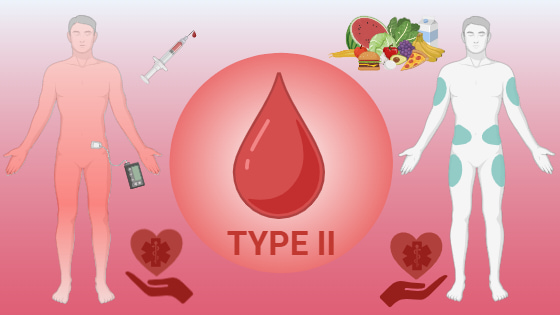Abstract
Background: Diabetes is a long-term condition affecting upwards of 422 million individuals worldwide and is linked to 1.5 million deaths each year, with rising prevalence due to insulin resistance or insufficient insulin production. Diabetes management requires patient adherence to self-care practices like nutrition, physical activity, and treatment. Despite proven benefits, long-term compliance remains low, raising concern among health professionals and researchers. The main purpose of this research was to evaluate self-care practices among diabetic patients visiting an Urban Health Training Centre in Mumbai.
Methods: This cross-sectional study carried out in a facility in December 2023, included 142 Type II Diabetics attending the Chronic OPD at the Urban Health Training Centre, Malvani, Mumbai, using the complete enumeration method. Interviews were conducted with patients to assess their diabetes condition and health management practices using “the Summary of Diabetes Self-Care Activities (SDSCA)” Measurement scale, while Adherence to prescribed medications was evaluated through the “Morisky Medication Adherence Scale-4 (MMAS-4)”. Data was analyzed using SPSS software, version 23. The occurrence of self-care practices was presented as proportions, and ‘Chi-square’ tests were utilized to examine the associations between risk factors and the scores.
Results: Among 142 participants, 26.05% were male, and 73.94% were female, with a mean age of 53 years (SD 10.81). More females (21.90%) were widowed compared to males (8.10%). Males (54.05%) had diabetes for over 5 years. Uncontrolled diabetes was higher in females (44.76%), who also had more obesity (26.67%). Among self-care practices, adherence to medication was highest, with males reporting 81.08%. Adherence to medication was significantly associated with self-care practices.
Conclusion: The identified gaps in ‘self-care’ management among our study participants underscore the urgent requirement for integrating extensive diabetes management education within standard clinical routines.
Keywords:
Adherence, blood sugar, diabetes, self-care, IndiaReferences
. WHO. Diabetes [Internet]. [cited 2024 Sep 2]. Available from: https://www.who.int/health-topics/diabetes
. Dinesh PV, Kulkarni AG, Gangadhar NK. Knowledge and self-care practices regarding diabetes among patients with Type 2 diabetes in Rural Sullia, Karnataka: A community-based, cross-sectional study. J Family Med Prim Care. 2016;5:847–52.
. Bansode B, Jungari DS. Economic burden of diabetic patients in India: A review. Diabetes Metab Syndr. 2019;13:2469–72.
. Shrivastava SR, Shrivastava PS, Ramasamy J. Role of self-care in management of diabetes mellitus. J Diabetes Metab Disord. 2013;12:14.
. World Health Organization. Adherence to long-term therapies: evidence for action [Internet]. iris.who.int. World Health Organization; 2003. Available from: https://iris.who.int/handle/10665/42682
[6]. Yosef T, Nureye D, Tekalign E, Assefa E, Shifera N. Medication Adherence and Contributing Factors Among Type 2 Diabetes Patients at Adama Hospital Medical College in Eastern Ethiopia. SAGE Open Nurs. 2023;9:23779608231158975.
. Toobert DJ, Hampson SE, Glasgow RE. The summary of diabetes self-care activities measure: results from 7 studies and a revised scale. Diabetes Care. 2000;23:943–50.
. Karthik RC, Radhakrishnan A, Vikram A, Arumugam B, Jagadeesh S. Self-care practices among type II diabetics in rural area of Kancheepuram district, Tamil Nadu. J Family Med Prim Care 2020;9:2912-8.
. Pacific WHORO for the W. The Asia-Pacific perspective : redefining obesity and its treatment [Internet]. iris.who.int. Sydney : Health Communications Australia; 2000. Available from: https://iris.who.int/handle/10665/206936
[10]. A. Suguna, Abijith S Magal, AntoIgnat Stany, T.Sulekha, K.Prethesh . Evaluation of self-care practices among diabetic patients in a rural area of Bangalore district, India. Int J Curr Res Aca Rev. 2015;3(6):415-422.
[11]. Harrison’s Principles of Internal Medicine, 21e. Access Medicine, McGraw Hill Medical 2022. Available from: https://accessmedicine.mhmedical.com/book.aspx?bookId=3095
. Emire MS, Zewudie BT, Tarekegn TT, GebreEyesus FA, Amlak BT, Mengist ST, et al. Self-care practice and its associated factors among diabetic patients attending public hospitals in Gurage zone southwest, Ethiopia. PLoS One 2022;17:e0271680.
. Chali SW, Salih MH, Abate AT. Self-care practice and associated factors among Diabetes Mellitus patients on follow up in Benishangul Gumuz Regional State Public Hospitals, Western Ethiopia: a cross-sectional study. BMC Res Notes. 2018;11:833.
. Raithatha SJ, Shankar SU, Dinesh K. Self-Care Practices among Diabetic Patients in Anand District of Gujarat. ISRN Family Med. 2014;2014:743791.
. Kassa RN, Ibrahim IY, Hailemariam HA, Habte MH. Self-care practice and its predictors among adults with diabetes mellitus on follow up at public hospitals of Arsi zone, southeast Ethiopia. BMC Res Notes. 2021;14:102.
. Addisu Y, Eshete A, Hailu E. Assessment of diabetic patient perception on diabetic disease and self-care practice in Dilla university referral hospital, south ethiopia. J Metabolic Synd. 2014;3(166):2167-0943.
. Garg S, Paul B, Dasgupta PA, Maharana SP. Assessment of self-care activities: A study among type 2 diabetic patients in a rural area of West Bengal. International Journal of Medical Science and Public Health 2017:1.
. Goyal N, Gupta SK. Self-care practices among known type 2 diabetic patients in Haldwani, India: a community based cross-sectional study. International Journal Of Community Medicine And Public Health 2019;6:1740–6.
. Dedefo MG, Ejeta BM, Wakjira GB, Mekonen GF, Labata BG. Self-care practices regarding diabetes among diabetic patients in West Ethiopia. BMC Research Notes. 2019;12:212.
. Selvaraj K, Ramaswamy G, Radhakrishnan S, Thekkur P, Chinnakali P, Roy G. Self-care practices among diabetes patients registered in a chronic disease clinic in Puducherry, South India. Journal of Social Health and Diabetes 2016;4:25–9.
. Kumar ASP, Moses PM, Bangi S, Chintada GS, Kiranmayi K. Level Of Self-Care Practices And Its Predictors Among Diabetic Patients Residing In Urban Field Practice Area Of Tertiary Health Care Centre. Journal of Pharmaceutical Negative Results 2022:1365–71.
How to Cite
License
Copyright (c) 2025 Ramalakshmi CS, Vijaykumar Singh, Mridula J Solanki

This work is licensed under a Creative Commons Attribution-NonCommercial 4.0 International License.
Copyright© by the author(s). Published by the Evidence Journals. This is an open access article distributed under the terms of the Creative Commons Attribution (CC BY) license (https://creativecommons.org/licenses/by/4.0/), which permits unrestricted use, distribution, and reproduction in any medium, provided the original author(s) and source are credited.




